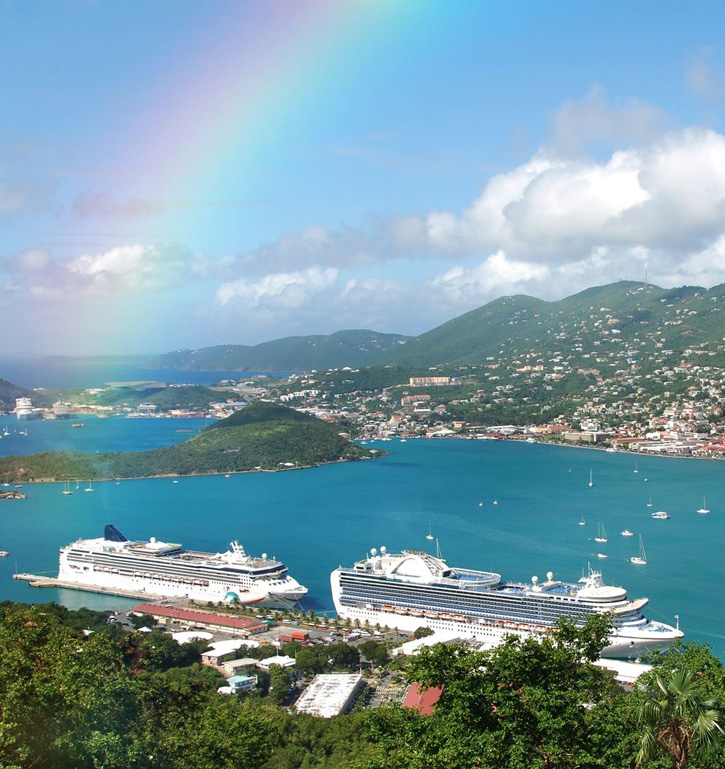The U.S. Virgin Islands, which are governed by the Americans with Disabilities Act, are much better equipped for travelers with physical disabilities than the British Virgin Islands.
Always call the hotel directly and explain your exact requirements before booking a room.Even so, getting around the islands will not be easy for those with physical limitations. Many shops, restaurants, and hotels are not designed for wheelchairs, and even those hotels that claim to be accessible may not meet your needs. Always call the hotel directly and explain your exact requirements before booking a room. Once you arrive on-island, do not be shy about speaking up for whatever you need; hotel, restaurant, and shop staff members are normally very accommodating and will help to overcome whatever accessibility challenges exist.The U.S. Virgin Islands tourism department keeps a helpful directory of accessible hotels, restaurants, and services on its website.

Cruise lines operating in the United States must adhere to the Americans with Disabilities Act. Here, two cruise ships are docked at St. Thomas in the US Virgin Islands. Photo © Ivan Cholakov/123rf.
A good option for disabled travelers is a cruise. A 2005 Supreme Court ruling requires all cruise lines that operate in the United States, including those that are registered in other jurisdictions, to adhere to the Americans with Disabilities Act. Some cruise lines were already catering to disabled passengers; Princess Cruises (800/774-6237) and Royal Caribbean Cruise Line (866/562-7625) have received good marks from disabled travelers. The website Cruise Critic offers extensive descriptions of each ship’s accessibility including passenger reviews.
Charter cruises aimed at passengers with specific accessibility needs are also available. Dialysis at Sea organizes cruises for travelers who need kidney dialysis. Passages Deaf Travel organizes charter cruises for cruisers with hearing impairments, and Accessible Journeys offers cruises for guests who are in wheelchairs or who are slow walkers. Mind’s Eye Travel occasionally offers cruises for blind or visually impaired travelers.
Excerpted from the Sixth Edition of Moon U.S. & British Virgin Islands.